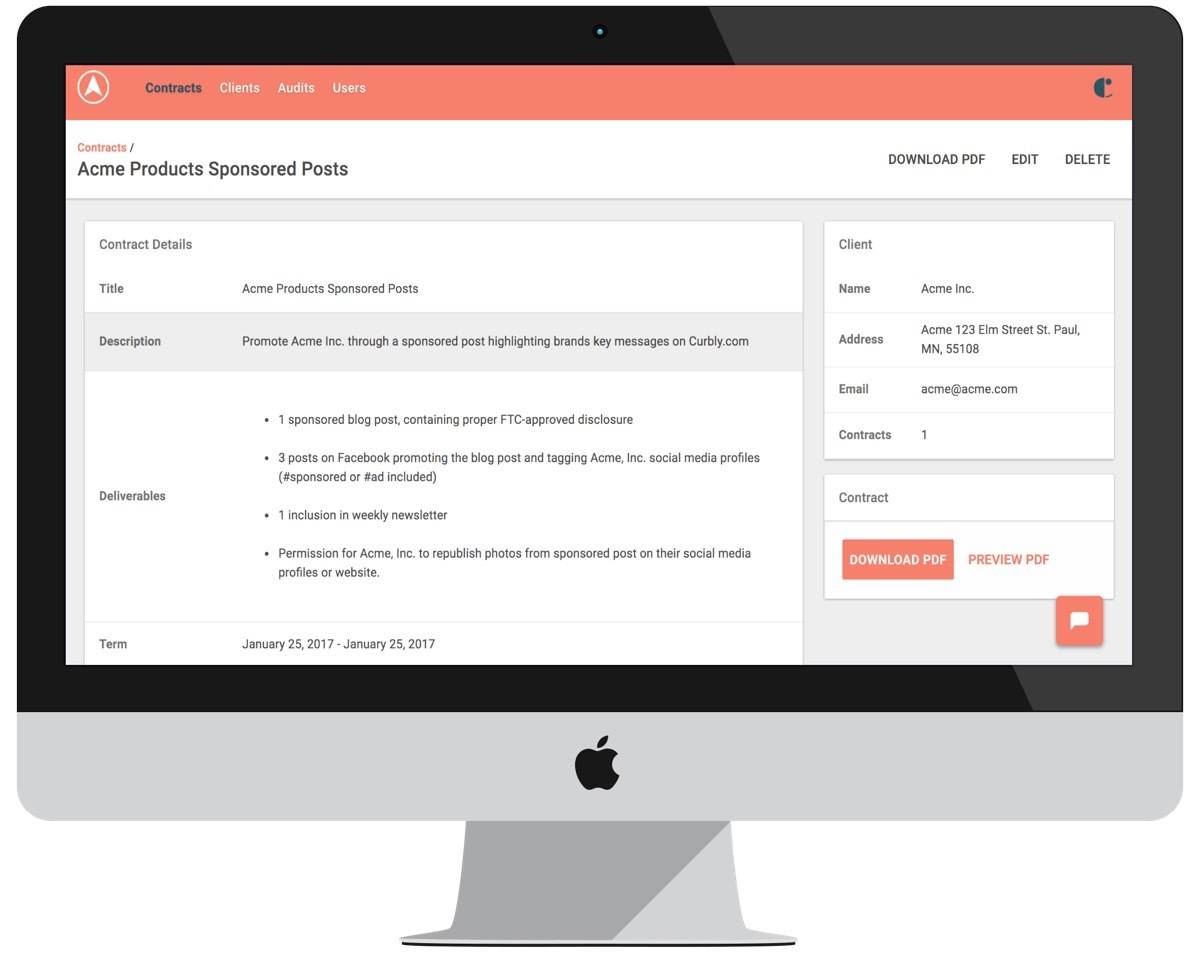If you’re a blogger doing sponsored content, it’s important to remember that what you provide to brands is not a product, but a service. That’s what they’re paying you for, and unless you go into each project with a very clear understanding of what they expect in return, you could have some problems.
This can be a little scary if you’re new to doing it. Most people aren’t used to writing, reviewing, and negotiating contracts. And it’s intimidating to think of reaching out to a brand you really want to work with, and giving them a list of deliverables and expectations.

But, as I said in my Alt Summit presentation last week, “Meek is not a business strategy.” If you’re an independent blogger trying to build a business, you have to be willing to speak frankly about what you can provide, when it’ll be done, and what you expect in return. And you have to be willing to negotiate clearly when something doesn’t work for you.
Here’s a simple example: almost every brand, when doing sponsored content with you, is going to want category exclusivity. That means they won’t want you to work with any competitive brands for the duration of the sponsored campaign. This makes sense, from their point of view, and, obviously, they start from a very broad definition of ‘exclusive’.
But this question, like most others in a contract, is negotiable! You may have some other brand partnerships in the works that don’t directly conflict, in your mind, but would be considered exclusive under the terms of the contract. This is a perfect example of my anti-meekness dictum: you need to go back to your brand contact, and politely (but firmly) indicate that you need the exclusivity clause to be defined more narrowly (like, only these five specific competitors, or only certain types of products).
And remember, this works both ways. For the sponsor, it’s really important to know exactly what you’re going to deliver, and when. A clear contract should state how many blog posts are due, how much social media promotion will happen, when drafts will be ready, who owns the copyrights, who can republish the images, etc.
I also recommend including a calendar or timeline in each contract (usually in the statement of work). This would list all the important milestones or deadlines that need to be met for the campaign to work (for both the blogger and the sponsor). For example, it should include blog post draft deadlines (so the brand can review), as well as any product deadlines the brand needs to meet (if they’re providing product you’ll need to use for the post).
So, a good contract clears things up for the blogger, and makes life a lot easier when, months after initially closing a deal, you actually get down to the nitty gritty of writing the posts. But just as importantly, it also makes your brand partners really happy. It makes it easy for them to keep track of their projects and avoid misunderstandings. They really like working with bloggers who provide a professional level of service with clear expectations and deadlines.
When I wrote my first sponsored post contract, I had basically no idea what I was doing. Fortunately, the most important part of doing contracts is writing clearly, and over the years I’ve been able to learn how to do that. These days, we have a standard agreement that we use to start a conversation with brands about what, exactly, a sponsored post campaign should include.
And since I love helping new bloggers get up to speed, we built a free web app that lets you use it:

What is it? Just a simple application that lets you input your client’s information, add the details of each sponsored post, and generate a professional-looking contract. It’s true that these days many brands are going to have their own contract they’ll want to use, but providing your own agreement never hurts, and it’s a good place to start, even if you end up using theirs. And lots of smaller brands you might want to work with won’t have a standard contract, and will be thrilled to use yours (if it’s clear and readable).

Why are we releasing this for free? Well, I’m a web developer, so building web applications is fun (and a good way to avoid doing the more boring parts of my job). I build this application to use internally at Curbly, so we could save time creating sponsored post contracts, and keep track of everything we do.
When I was asked to speak at Alt Summit this year (my topic was “Monetizing Facts for New Bloggers”), I thought it’d be nice to provide the audience with a little added value (after all, just hearing me talk for half an hour might have been a little … underwhelming). So, here’s that URL again:
It’s free! It’s private (no one else can see your contracts). And it’s under development, meaning, although it’s not perfect, we’re very much open to feedback from users about how it should work better, and what’s missing. So check it out!
